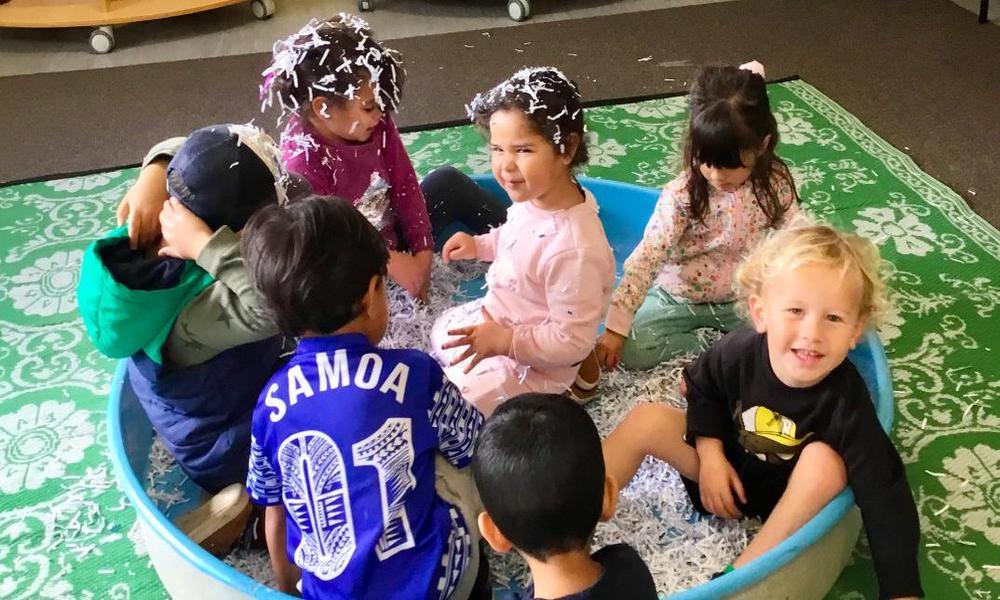The realm of early childhood education in Papatoetoe is vast and varied. Beyond the traditional classroom setting, a significant aspect often overlooked is the role of outdoor learning in fostering holistic development. This element of learning stretches beyond just physical health but also encompasses mental wellness, social interaction, and scientific curiosity.
The Allure of Outdoor Environments
Children are naturally drawn to active play outdoors – it presents them with an opportunity to explore, experiment, manipulate, marvel, discover, and practice various skills. The ever-changing nature of the outdoors makes it an intriguing and exciting environment for young minds. They can observe the changing seasons, the life cycle of plants and animals, and the interactions of natural elements — all of which offer rich, real-life lessons.
In the great outdoors, children have the freedom to move at their own pace and make independent decisions, fostering their sense of autonomy and self-confidence. They can choose what to explore, how to play, and who to interact with. This autonomy can be empowering and motivates them to take ownership of their learning.
A Breath of Fresh Air for Mental Wellness
Engaging with the natural world can significantly contribute to mental well-being. Children who participate in outdoor play often exhibit lower stress levels and display improved mood and concentration. They learn to appreciate the tranquillity and serenity nature offers, which can act as a buffer against the daily stresses of modern life.
Moreover, the sensory stimulation that the outdoors offers – the rustling of leaves, the chirping of birds, the feel of grass underfoot – can be soothing and therapeutic.
Building Social Bridges
Outdoor environments provide excellent settings for social interaction and collaboration. From playing make-believe games to engaging in team activities, children learn to communicate, cooperate, negotiate, and resolve conflicts. These experiences play a crucial role in developing their social skills and emotional intelligence.
In these settings, children also learn to navigate the complexities of social dynamics – understanding others’ perspectives, sharing resources, taking turns, and respecting boundaries. These are invaluable life skills that go a long way in shaping their interpersonal relationships and social competence.
The Outdoor Classroom: A Catalyst for Creativity
An outdoor classroom is not just a physical space; it’s a hub for creativity and imagination. Here, the rules and structures that govern indoor classrooms can be bent and reimagined. Children can create their own worlds, embark on imaginary adventures, and express their creativity freely. This freedom to think and act creatively is instrumental in fostering innovation and problem-solving skills.
Outdoor spaces also offer endless possibilities for open-ended play – play without a predetermined purpose or outcome. This type of play stimulates imaginative thinking and encourages children to come up with novel ideas, solutions, and ways of doing things.
Nature as a Teacher of Science
Outdoor learning invites children to be young scientists, encouraging them to observe, ask questions, and make discoveries. Interacting with natural elements like plants, animals, and weather phenomena can ignite a child’s curiosity about the world around them. Such experiences lay the groundwork for scientific thinking and understanding.
Beyond just observing, children can engage in hands-on experiences like planting seeds and watching them grow, collecting rocks and leaves, or studying insects. These activities provide a concrete foundation for abstract scientific concepts, making learning more meaningful and memorable.
Enhancing Physical Well-being
Outdoor play promotes an active lifestyle. Children develop their motor skills, strength, flexibility, and coordination through running, jumping, climbing, and balancing activities. This active engagement not only boosts their physical health but also contributes to their cognitive development. Furthermore, exposure to sunlight provides children with vitamin D, which is essential for bone health and immune system function.
In conclusion, outdoor learning offers a multifaceted approach to early childhood education in Papatoetoe. It fosters mental wellness, encourages social interaction, ignites scientific curiosity, boosts creativity, and promotes physical health. Therefore, integrating this learning into a child’s daily routine is essential for their overall development and well-being. It’s time we embrace the great outdoors as a vital component of early learning experiences.






